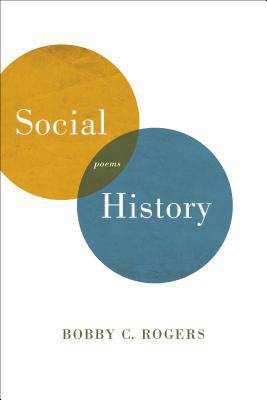
- Retrait gratuit dans votre magasin Club
- 7.000.000 titres dans notre catalogue
- Payer en toute sécurité
- Toujours un magasin près de chez vous
- Retrait gratuit dans votre magasin Club
- 7.000.0000 titres dans notre catalogue
- Payer en toute sécurité
- Toujours un magasin près de chez vous
Description
Bobby C. Rogers's second collection, Social History, listens hard to the voices of American characters and celebrates the gestures of ordinary life. The long lines of his narrative poems trace the undulations of southern speech, and his careful eye for detail reflects the influence of generations of storytellers, from authors like Robert Penn Warren and Eudora Welty to Rogers's own distant family members, living in "decrepit houses where the floors sagged and the front rooms reeked/of snuff, bitter as the smell off a pile of clods beside an open grave, the scent of time that hadn't succeeded in passing."
In his beguiling evocations of the past, Rogers looks back with affection to the rhythms and rituals of growing up in small-town Tennessee. While his poems speak of a living connection to community and to the earth, they also acknowledge the growing need to question what we have been taught and to break free and make our own way in this world. Graceful and plainspoken, the poems of Social History bear witness to ways of living that, though past, are never truly lost.
Spécifications
Parties prenantes
- Auteur(s) :
- Editeur:
Contenu
- Nombre de pages :
- 70
- Langue:
- Anglais
- Collection :
Caractéristiques
- EAN:
- 9780807162040
- Date de parution :
- 21-03-16
- Format:
- Livre broché
- Format numérique:
- Trade paperback (VS)
- Dimensions :
- 152 mm x 229 mm
- Poids :
- 113 g

Les avis
Nous publions uniquement les avis qui respectent les conditions requises. Consultez nos conditions pour les avis.






